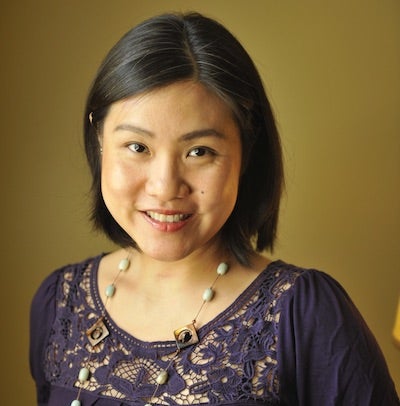The Dr. Bernard Cobetto Lecture on Contemporary Ethical Issues will be available in person (Ferguson Theater) and via live stream.
The Dr. Bernard Cobetto Lecture on Contemporary Ethical Issues will return Monday, April 15, for its 16th year at the University of Pittsburgh at Greensburg. This year’s event is a panel discussion entitled, “Artificial Intelligence: the Present and Future of AI. Integrating diverse voices into AI and understanding opportunities, concerns, and threats.” The program will begin at 7 p.m. in the Mary Lou Campana Chapel and Lecture Center. It is free and open to the public.
Three members of the University of Pittsburgh faculty will share their expertise on this topic.
 Peter Brusilovsky, PhD
Peter Brusilovsky, PhD
Peter Brusilovsky, PhD, is a professor of Information Science and Intelligent Systems at the University of Pittsburgh and the director of the Intelligent Systems Program. Since earning his doctorate from Moscow State University, he has been working in the field of intelligent user interfaces, personalized learning, and recommender systems for more than 30 years. He has published numerous papers and edited books on adaptive hypermedia, the adaptive Web, and social information access.
The recipient of the Alexander von Humboldt Fellowship, Brusilovsky has also received the NSF CAREER Award and the Fulbright-Nokia Distinguished Chair. He served as the editor-in-chief of IEEE Transactions on Learning Technologies, and as a program chair for several conferences, including RecSys 2019. He currently serves as a board member of several journals, including User Modeling and User Adapted Interaction, ACM Transactions on Intelligent Information Systems, and the International Journal of AI in Education.
His current interests are focused on user-centered intelligent systems in the areas of adaptive learning, recommender systems, and personalized health.
 Sera Linardi, PhD
Sera Linardi, PhD
Sera Linardi, PhD, is the Siegel PiTech Faculty Impact Fellow at Cornell Tech and the inaugural executive director of Equity and Access in Algorithms, Mechanism, and Optimization (EAAMO). EAAMO is a community of researchers in mathematical and computational fields that seek to place the interests and goals of marginalized communities at the foundation of algorithmic systems. There are currently 2,000 members from 150 institutions and 50 countries, with leadership made up of junior researchers from six continents.
She is currently on leave from the University of Pittsburgh where she is an associate professor of economics at the Graduate School for Public and International Affairs. Linardi was the founding director of Pitt’s Center for Analytical Approaches for Social Innovation (CAASI), an incubator of community-engaged social justice projects that combines both human-centered and quantitative approaches.
Linardi earned her PhD in Social Science from the California Institute of Technology. For her work on CAASI, she has been awarded the 2023 Chancellor Distinguished Service Award, 2022 XPRIZE Racial Equity Alliance Award, the 2022 Community Engaged Scholarship Forum (CESF) Partnership of Distinction Award, and the 2021 New Horizons Award for Bridging Research and Practice at ACM EAAMO. She has been featured in multiple Smart City and NSF panels on community-led data/tech projects.
 Angela Stewart, PhD
Angela Stewart, PhD
Angela Stewart, PhD, is an assistant professor at the University of Pittsburgh’s School of Computing and Information. She also is a research scientist at the Learning Research and Development Center.
Stewart conducts research at the intersection of the learning sciences, artificial intelligence, and human-computer interaction. She uses multimodal data to understand students' social and cognitive states, particularly in collaborative STEM learning. She also creates equitable educational spaces by designing technologies that support the agency of students and teachers. Stewart applies a culturally-responsive lens to her research, with a particular focus in emboldening Black girls' design of transformative technologies.
Stewart, who completed her doctorate at the University of Colorado-Boulder, was named a 2021-2022 Emerging Scholar by the International Society of the Learning Sciences and recently received an NSF Racial Equity in STEM Award for creating an intersectional AI learning ecosystem for Black girls.
The Dr. Bernard Cobetto Lecture Series was established in 2005 at the University of Pittsburgh at Greensburg by Bernard Cobetto, MD, and his wife, Ellen. It is typically held annually and focuses on contemporary ethical issues. Dr. Cobetto was a 1945 graduate of the College of Arts and Sciences at the University of Pittsburgh and a 1947 graduate of the University’s School of Medicine. Sadly, both Dr. Cobetto and Ellen have passed, in 2022 and 2020, respectively. They were residents of Greensburg.
Founded in 1963, the University of Pittsburgh at Greensburg is a publicly assisted, four-year, liberal arts college in southwestern Pennsylvania. Pitt-Greensburg offers 31 baccalaureate degree programs, including new majors in Nursing, Healthcare Management, Public Policy, and Education, 30 minors, and four certificate programs. With nearly 1,400 students, more than 10,000 alumni, and faculty and staff numbering 260, Pitt-Greensburg provides a vibrant, diverse community that is a dynamic model of a 21st-century liberal arts education. As part of the University of Pittsburgh system, Pitt-Greensburg offers the resources of a world-renowned university combined with the individualized and immersive experiences of a small liberal arts college. Creativity and an entrepreneurial spirit permeate the campus and extend into its many collaborative projects with the Westmoreland County community. Nestled in Pennsylvania’s beautiful Laurel Highlands, the campus is a five-minute drive from uptown and less than an hour’s drive from Pittsburgh.